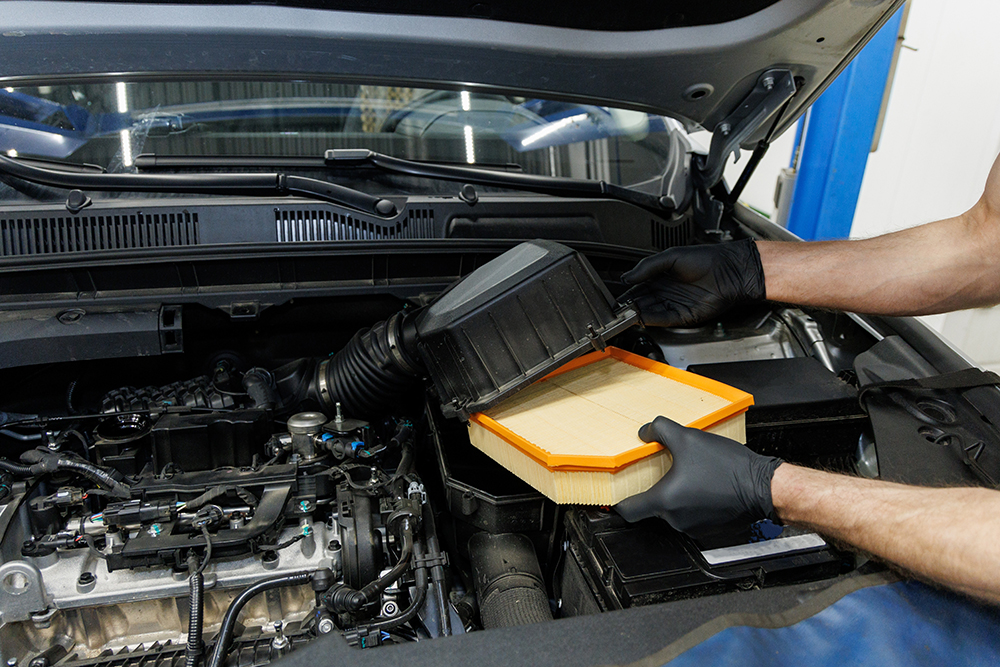Too Hot? Too Cold? Repairing HVAC Systems

Your vehicle's HVAC (heating, ventilation, and air conditioning) system is essential for maintaining a comfortable driving experience, no matter the weather outside. Whether you're battling D.C.'s swampy summer heat or the winter chill, a well-functioning HVAC system keeps your car's cabin at the right temperature and ensures proper airflow. However, like any other part of your vehicle, the HVAC system can encounter issues that require repair. Understanding how these systems work and the common problems they face can help you identify when repairs are needed and ensure your comfort on the road.
How Vehicle HVAC Systems Work
The HVAC system in your vehicle is composed of several key components that work together to regulate the temperature and airflow inside the cabin. These components include:
- Compressor: The compressor is the heart of the air conditioning system. It pressurizes the refrigerant and circulates it through the system.
- Condenser: The condenser cools the refrigerant, converting it from a gas to a liquid by removing heat.
- Evaporator: The evaporator absorbs heat from the cabin air, cooling it down before it is blown back into the car.
- Blower Motor: The blower motor pushes air through the HVAC system and into the cabin.
- Heater Core: The heater core warms the air that passes through it using heat from the engine's coolant.
Together, these components allow your vehicle's HVAC system to control the temperature, humidity, and air quality inside the car.
Common HVAC System Issues
Understanding how the system works is important, but so is recognizing common HVAC issues so you can know when auto repairs are needed.
Weak Airflow
Weak airflow from the vents can be frustrating, especially on hot or cold days. This issue can be caused by several factors, including a clogged cabin air filter, a malfunctioning blower motor, or blocked air ducts. In some cases, the issue may be as simple as replacing the cabin air filter, but a failing blower motor or obstructed ducts will require professional repair.
Air Conditioning Not Cooling
If your air conditioning is blowing warm air, it could be due to a refrigerant leak, a faulty compressor, or a problem with the condenser. Refrigerant leaks are a common issue and can be caused by damaged hoses, seals, or other components. A professional mechanic can diagnose the leak, repair the damaged parts, and recharge the refrigerant to restore cooling performance.
Heater Not Warming
A heater that isn't producing warm air could indicate a problem with the heater core, thermostat, or engine coolant levels. A malfunctioning heater core can cause a loss of heat or even lead to coolant leaks inside the vehicle. Additionally, a stuck thermostat or low coolant levels can prevent the engine from reaching the proper operating temperature, resulting in poor heating performance.
Strange Noises
Unusual noises, such as rattling, grinding, or squealing, when the HVAC system is running, can signal various issues. These noises may be caused by a failing blower motor, debris caught in the system, or worn-out components like the fan belt. Identifying the source of the noise and addressing it promptly can prevent further damage.
Foul Odors
A musty or unpleasant odor coming from the vents is often a sign of mold or mildew growth within the HVAC system. This can occur when moisture accumulates in the evaporator or air ducts. Cleaning and disinfecting the system, along with replacing the cabin air filter, can help eliminate odors and improve air quality.
Why Timely Repairs Are Important
Ignoring HVAC system issues can lead to more significant problems and discomfort while driving. For instance, refrigerant leaks can worsen over time, leading to a complete loss of cooling capability and potential damage to the compressor. Similarly, a malfunctioning heater core can cause overheating issues with the engine, leading to costly repairs.
Timely auto repair not only ensures your comfort but also prevents further damage to the HVAC system and other related components. Regular maintenance, such as changing the cabin air filter and checking refrigerant levels, can also help keep the system running smoothly and extend its lifespan.
While some minor HVAC system issues can be addressed with basic maintenance, such as replacing the cabin air filter, others require the expertise of a professional auto mechanic. Complex repairs, such as fixing refrigerant leaks, replacing the compressor, or addressing electrical issues, should always be handled by a qualified technician.
But you're in luck! The ASE-certified auto repair technicians at Metro Motor have the tools and knowledge to diagnose and repair the issue accurately, ensuring your HVAC system operates efficiently and safely. By addressing HVAC problems promptly, you can be confident that your vehicle's heating, cooling, and ventilation systems continue to function effectively, keeping you comfortable on the road year-round.
Vehicle care information made available by Metro Motor is presented as helpful advice for general maintenance and should not be construed as instructions for at-home vehicle service. Be sure to consult your owner’s manual and a licensed, professional mechanic for diagnostics and repair.
